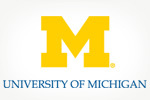Project Profile
Institutions, Diversity, Emergence, Adaptations and Structures (IDEAS)
University of Michigan
Abstract
The University of Michigan and The Santa Fe Institute, two leading institutions in the study of complex adaptive systems, are jointly organizing and supporting an IGERT graduate program for social scientists interested in institutional performance and design. The analytic core of the curricula borrows from multiple disciplines: economics, political science… more »
The University of Michigan and The Santa Fe Institute, two leading institutions in the study of complex adaptive systems, are jointly organizing and supporting an IGERT graduate program for social scientists interested in institutional performance and design. The analytic core of the curricula borrows from multiple disciplines: economics, political science, computer science, physics, and sociology. The emphasis will be on how collections of diverse agents behave and adapt when their interactions are structured by formal and informal institutional constraints. Student researchers will study how formal institutions adapt and respond, how informal institutions emerge, how the structure of relationships between and within institutions affects performance and robustness, and when and how cultural, social, economic and behavioral diversity matter for institutions. The program will be housed at the University of Michigan but students will have the opportunity to visit the Santa Fe Institute for a semester. The IDEAS IGERT will enable students to become active members in the social science research communities at both institutions through seminars, research assistantships, interdisciplinary courses, and interactions with faculty. IDEAS students will also take courses and attend seminars with students enrolled in STIET (another NSF sponsored IGERT at UM).
IGERT is an NSF-wide program intended to meet the challenges of educating U.S. Ph.D. scientists and engineers with the multidisciplinary backgrounds and the technical, professional, and personal skills needed for the career demands of the future. The program is intended to catalyze a cultural change in graduate education by establishing innovative new models for graduate education and training in a fertile environment for collaborative research that transcends traditional disciplinary boundaries. In the fifth year of the program, awards are being made to twenty-one institutions for programs that collectively span the areas of science and engineering supported by NSF. « less
Contributions[?]
Project members' contributions to the library and showcase are listed here.
See All 32 Contributions »






